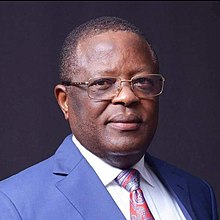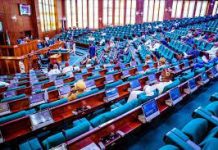Minister of Works, Chief David Umahi, says the present economic hardships in the country did not start from President Bola Tinubu’s administration.
Umahi made the declaration on Sunday at his hometown Uburu, Ohaozara Local Government Area of Ebonyi while addressing newsmen.
He attributed the hardships to several preceding factors.
The minister said that preceding administrations had build-ups of farmers and herders conflicts among other forms of insecurity which adversely affected food production.
“I was the Chairman of the National Economic Council (NEC) committee on resolving farmers and herders conflicts and I settled such conflicts in several states, especially in the north.
“Such settlements yielded fruits but the problem had dealt a lot of blow on food production with farmers prevented from going to their farms.”
Umahi noted that with such underlying developments, no one should expect the Tinubu’s administration to fix such challenges within nine months.
“It is not possible to solve the problems within such period in office and we should ask ourselves how to solve them.
“President Tinubu is fortunately tackling the problems with his policies and when something has gotten to the climax, you don’t expect to dissolve it over night,” he said.
He noted that the south-east geo-political zone for instance was presently free from incessant farmers and herders conflict, showing that President Tinubu had solved its major problem.
“That is why we should not join the protests on economic hardship because if you remove the gunmen issue, the zone will be safe and farmers can work,” he said.
Umahi also commended President Tinubu for directing cement manufacturers to revert to the old prices of the product in further cushioning effects of the hardship.
“The president is a compassionate leader who feels the sufferings of his people and we expect the manufacturers to comply with the presidential directive.
“I also commend my successor Gov. Francis Nwifuru for taking proactive steps to revive the Nigeria Cement (NIGERCEM) Company, Nkalagu as it should not continue being moribund.” (NAN)
By Chukwuemeka Opara




